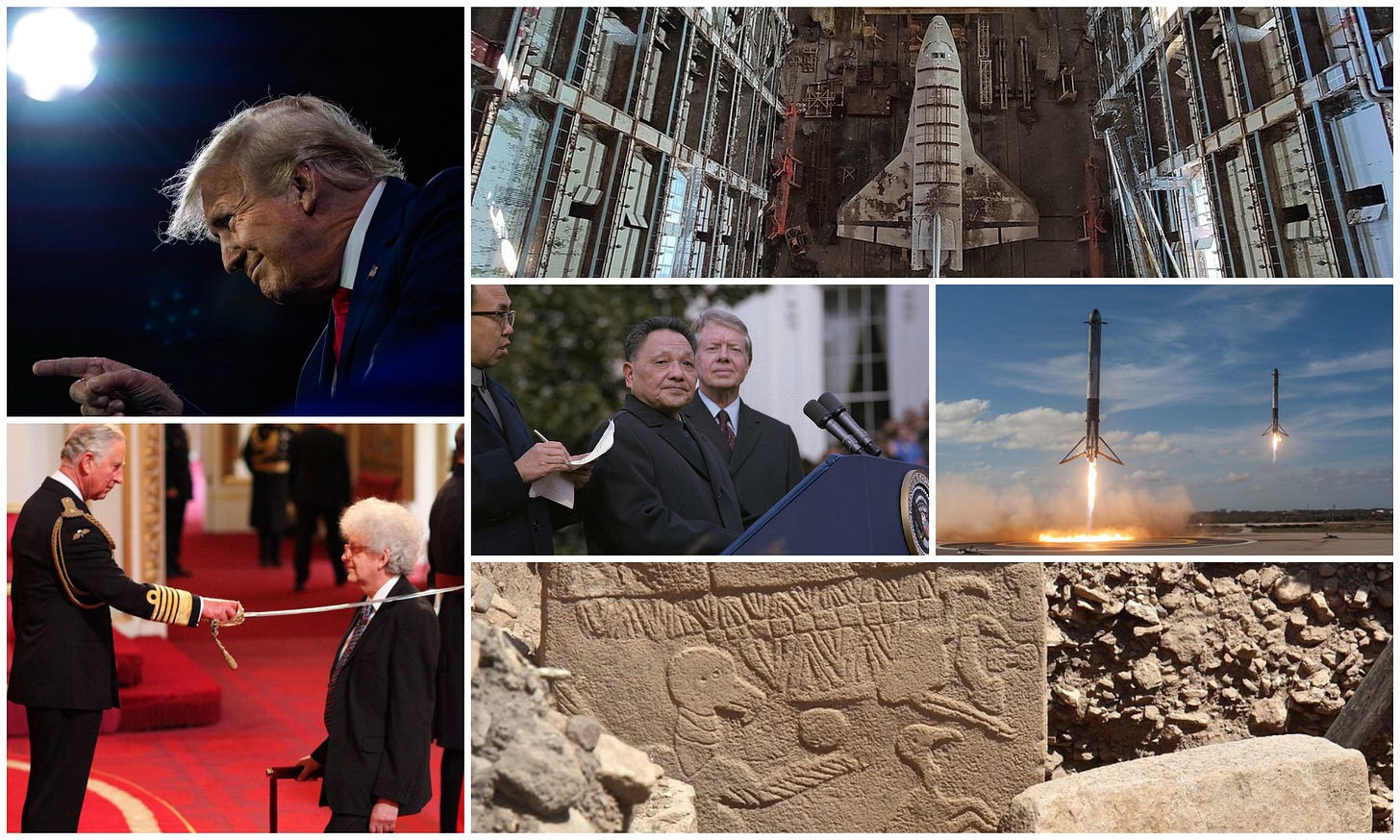My Top Ten Most Recommended Essays to Read
Here are the best articles I have ever written on civilization, technology, history, and the future of our modern society.
Over the years, I have written dozens of essays and articles for a variety of publications, covering topics ranging from my theory of history and civilization to the lessons of China’s rising economy and the implications of the recent U.S. presidential election. The full list of all of my writing, speeches, and interviews is available in chronological order here. But for those who are new to my work and want to start with the most interesting essays first, here are my top ten most recommended essays and articles to read, sorted very roughly from most accessible to most provocative:
10. How Social Engineering Drives Technology: Technology doesn’t disrupt society. Society adopts technology through a process of social re-engineering. This can’t happen without functional institutions. Published in Palladium Magazine. Read here.
9. A New Way to Decipher the 2024 Race: There are candidates who can adapt and change and those who can’t. What does that tell us about the next president of the United States? Published in POLITICO Magazine. Read here.
8. How Deng Xiaoping Solved China’s Trade Problem—and What America Can Learn from Him: More than at any point in contemporary history, China sees itself as a strong power. Now aware of China’s monumental presence on the world stage, Western elites can take a leaf from Deng Xiaoping and relearn how to exploit trade policy. Published in The National Interest. Read here.
7. Science Needs Sovereigns: Powerful individuals are the best allies to crazy new ideas. Bureaucracies are their greatest adversary. Science is no exception. Published in Palladium Magazine. Read here.
6. Cities and the Balance of Power: National politics is always shaped by urban politics—and that won’t change no matter how many pandemics or remote technologies we get. Published in City Journal. Read here.
5. Why America Prefers a Weak and Peaceful Europe: The whole point of Washington's extension of its sphere of influence after World War II was to turn Europe into a reliable, but secondary, ally. Published in The National Interest. Read here.
4. Heal Thyself: Healthy institutions are made, not born. The same patterns of institutional health can be seen from World War II to today’s Silicon Valley. Published in City Journal. Read here.
3. The End of Industrial Society: The Industrial Revolution stopped before it was ever completed. The aftermath is not a clean and developed world, but lost knowledge and civilizational decline. Published in Palladium Magazine. Read here.
2. Intellectual Dark Matter: Knowledge that we can show exists, but cannot directly access, rests at the foundations of society and technology. Published by the Long Now Foundation. Read here.
1. Why Civilization Is Older Than We Thought: New discoveries are adding millennia to our past. The implications should change our future. Published in Palladium Magazine. Read here.
Again, the full list of all my work is available here. You can bookmark the link. As a bonus, here are some great essays by my friends and colleagues at Bismarck Analysis:
• The Only Reason to Explore Space: There is only one durable justification for space exploration. If we fail to understand it, our civilization will end on Earth, not among the stars. Published by Marko Jukic in Palladium Magazine. Read here.
• The Academic Culture of Fraud: The sprawling bureaucracy of academia whose legitimacy rests on carrying out science has become a broken patronage machine that endangers scientific integrity. Published by Ben Landau-Taylor in Palladium Magazine. Read here.
• Steel Is Just the Start: Britain is now incapable of producing anything physical. Bringing the benighted steelmaker back onto the Government’s books would make Whitehall accountable for high energy costs. Published by Rian Whitton in The Telegraph. Read here.
I hope you enjoy reading these essays and gain new insights from them! The people, thinking, and methods behind them are the same we apply every day to Bismarck Brief. Paid subscribers to Bismarck Brief receive a new in-depth investigation of a strategically relevant institution, industry, or live player in their inbox every Wednesday at 2pm GMT sharp. I warmly invite you to become a paid subscriber and join us on this ongoing investigation of the global power landscape:
Sincerely,
Samo Burja
Founder and President, Bismarck Analysis



